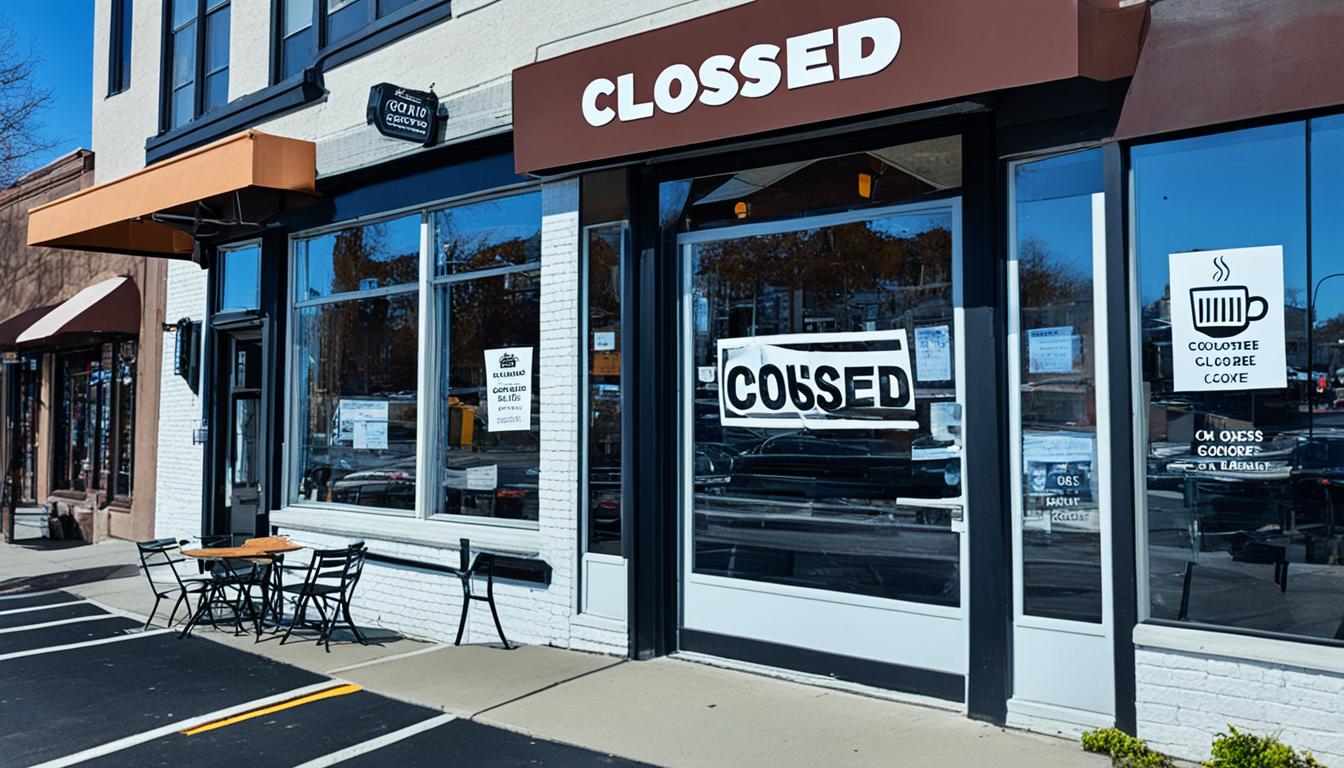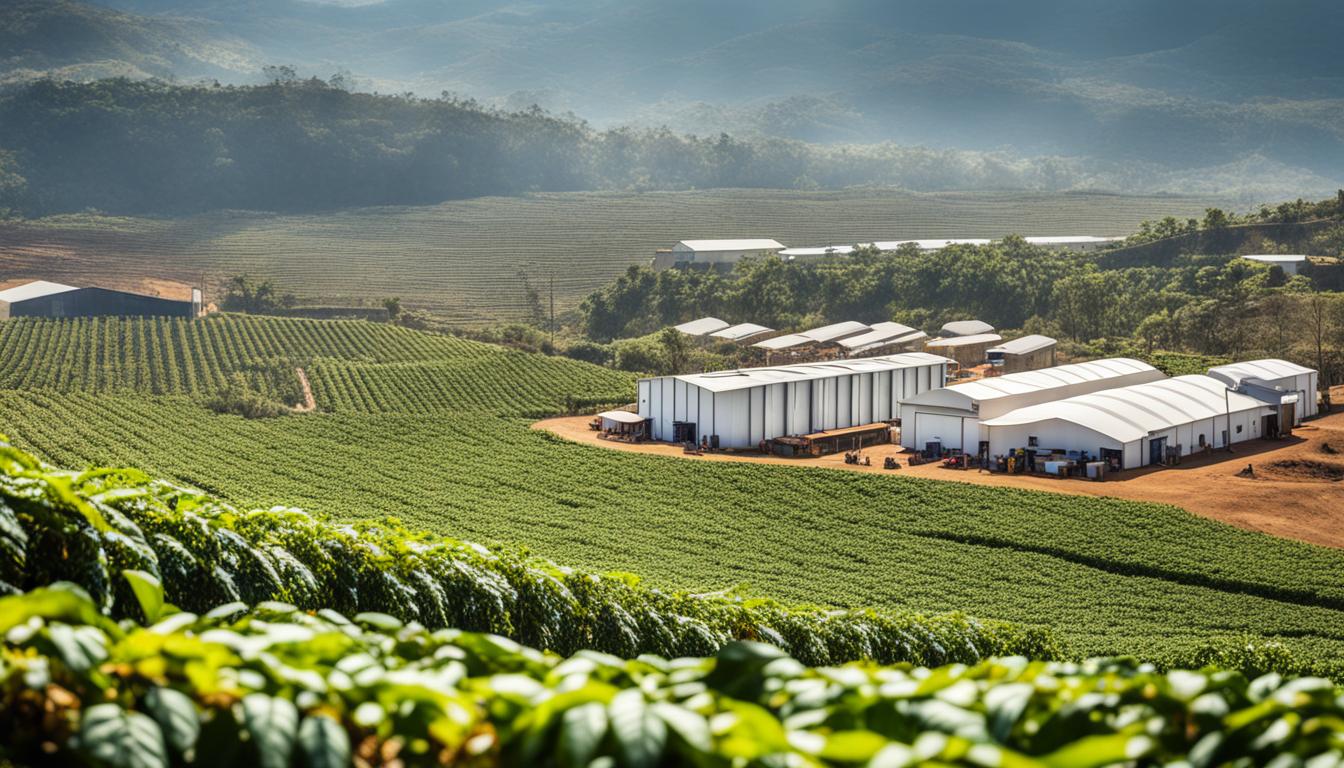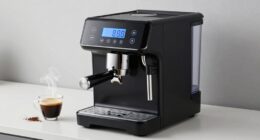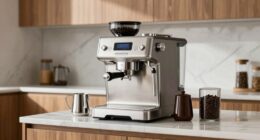Did you know that approximately 60% of new coffee shops shut down within the initial three years of operation? A significant factor contributing to this trend is the impact of licensing laws on their overall success. In the thriving coffee culture of the United States, these laws play a crucial role in determining various aspects such as the products that can be sold and the ways in which businesses can engage with their customers. Obtaining the necessary permits is essential for owners as it enables them to comply with regulations and remain competitive in a challenging market.
These rules cover the needed licenses, health permits, and other certifications. They’re set by state and local authorities. For people wanting to open a coffee shop, understanding these laws is crucial. It keeps their business legal and sets them up for success.
Key Takeaways
- Licensing laws are crucial for the legal operation of coffee shops.
- Understanding local regulations can prevent costly legal issues.
- Proper permits can enhance business offerings, including food and alcohol service.
- Health and safety compliance is essential to protect customers and the business.
- A well-prepared business plan incorporates licensing considerations from the start.
Understanding Business Licenses for Coffee Shops
Opening a coffee shop requires key steps, including getting business licenses. These licenses legally allow you to run your shop. They also help gain trust from customers and suppliers. Knowing what licenses you need helps you follow state rules and plan better.
Definition and Importance of Business Licenses
Business licenses let entrepreneurs operate certain businesses legally. For coffee shops, the right licenses mean you’re following the law. This makes customers more likely to visit your shop. Not having your licenses can mean big fines or even closing down, which hurts your shop’s name and money.
How Licensing Affects Operations and Service
Licensing rules touch many parts of running a coffee shop. These include:
- Menu offerings: Some licenses control your menu, affecting what products you can offer.
- Staff training: Certain licenses require your staff to have special training. This ensures good service and food safety.
- Compliance with health and safety standards: Local health rules must be followed, shaping how your shop works.
Following these rules keeps you legal and makes your coffee shop better. It means safer, quality service for your customers.
Variations in Licensing Requirements Across States
Licensing varies by state and city. For example, business licenses can cost $25 to $7,000 based on profit and business type. Retail food licenses usually cost $100 to $1,000. Some places need extra permits like music licenses, which cost $250 to $500. Local competition, customer types, and laws cause these differences.
Knowing these differences is key for coffee shop owners. It affects your costs at the start and how your shop runs later on. Here’s a table showing common costs for coffee shop licenses:
| License Type | Cost Range |
|---|---|
| Business License | $25 – $7,000 |
| Certificate of Occupancy | $100 |
| Retail Food Establishment License | $100 – $1,000 |
| Sign Permit | $20 – $50 |
| Music License | $250 – $500 |
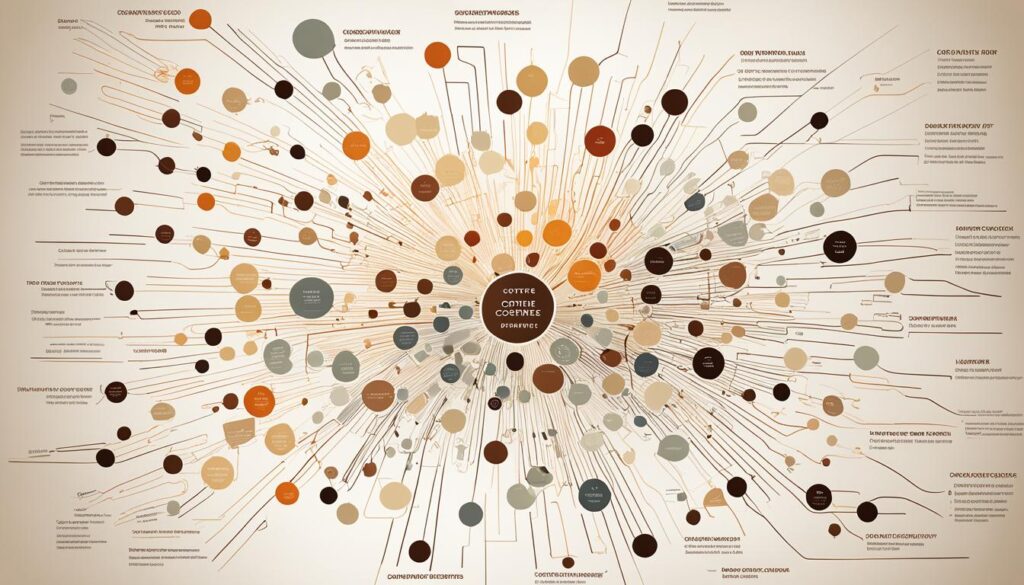
How Business Licenses and Permits Legislation is Affecting Local Coffee Shops
The landscape of business permits and licensing is rapidly changing. This has big effects on local coffee shops. Recent laws can be tricky but also provide chances for café owners as they adjust to new rules.
Current Trends in Licensing Legislation
States have very different rules for licensing. This creates a mix of regulations for local coffee shops. These places often need many licenses related to food and drinks. For example, coffee roasting shops might need an air permit from the EPA and a food processing license.
Breweries in coffee shops also have to be careful. They need licenses from both the liquor authority and the agriculture department. Getting these permits can be hard and make people wonder if small shops can keep going. Health departments are key in this process, making sure cafes follow rules that protect customers.
On the Ground Impact for Local Cafés
Local coffee shops feel these changes directly. Zoning laws can control where cafés are or what they can do, like live music. Take Somethin’s Brewin’ as an example, new fees have made it hard to have live music.
Needing extra permits, like music licenses and pavement licenses, adds more challenges. Each license means more costs and work, which can be tough for small shops in a competitive environment.

In summary, coffee shop owners must stay up-to-date and flexible. Adapting to changes helps them follow the law and remain strong in a tough business world.
| License Type | Description | Typical Cost |
|---|---|---|
| General Business License | Required to operate any type of business. | Varies by location |
| Food Processing License | For establishments involved in food preparation and handling. | Approximately $150 |
| Alcohol License | Necessary for serving alcoholic beverages. | Varies widely, from $200 to over $1,000 |
| Music License | Required for establishments hosting live music. | Varies based on usage |
| Health Permit | Ensures compliance with health and safety regulations. | Usually around $100 annually |
Challenges Faced by Coffee Shops in Obtaining Licenses
Opening a coffee shop means going through lots of paperwork for licenses. Owners face many issues that can slow down opening their shops. These include tough laws, health rules, and high costs for following these rules. Knowing about these challenges is key for anyone wanting to start a coffee shop.
Legal and Administrative Hurdles
Getting all the needed licenses can be tricky. Owners deal with slow processes and complicated forms, causing delays. They often have to get licenses from many places, paying different fees. In places where selling alcohol is tightly controlled, the paperwork can be overwhelming. It’s important for owners to plan carefully.
Understanding Health and Safety Regulations
Health rules are very important in getting a license. Owners need to know the health codes of their area. These codes cover food safety and how clean the place must be. Getting approved by the health department depends on what’s on the menu and where the shop is. Also, all workers must get a food handler’s card, adding more steps.
Cost Implications of Licensing and Compliance
The cost of licenses and following rules is high. Starting a coffee shop can cost between $330,000 and $1,000,000. This includes buying a place, equipment, and all needed licenses. Every year, there are fees to keep these licenses. This is tough for small shops. Planning a good budget is a must for keeping the business going.

| Cost Considerations | Initial Costs | Annual Costs |
|---|---|---|
| Business Licenses | Varies by state and type | Annual renewal fees: $25 – $100 |
| Health Permits | Obtaining health department permit | Inspection costs and renewal |
| Food Handler’s Cards | Training costs for employees | Expiring cards may require retraining |
| Alcohol Licensing | Application fees for liquor licenses | Renewal fees based on local regulations |
The Role of Alcohol Permits in Coffee Shop Success
Adding alcohol permits can boost coffee shop success. It offers beers and cocktails, attracting more people, especially at night. Less than 15% of Americans drink coffee in the evening. This opens a big opportunity for coffee shops to grow sales by diversifying what they offer.
Benefits of Serving Alcohol at Coffee Shops
Adding alcohol can greatly increase profits. For alcoholic drinks, the profit margin is usually 10-15%. It also puts coffee shops ahead in a tough market. They can host live music or theme nights, drawing in customers. These events help sell more coffee and create a new experience for customers.
Risks and Challenges Related to Alcohol Licensing
But, serving alcohol comes with challenges. The process for getting an alcohol license has many steps. It can be expensive and complicated, with a lot of rules to follow. Coffee shop owners need to hire skilled staff and teach them about alcohol service. They also have to understand the laws well. It’s important for owners to know both the good and bad sides of getting an alcohol permit.
